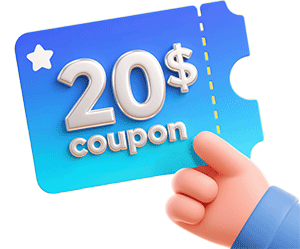What is a Private Label?
A private label is a business strategy where a company sells products under its own brand name, while a third-party manufacturer handles production.
This model gives businesses control over branding, pricing, and quality without managing manufacturing. It's widely used in industries like food, beauty, and consumer goods, allowing companies to boost margins and build brand recognition.
What is a Private Label Product?
A private label product is made by an external manufacturer but branded and sold by another company. These products are tailored to match the retailer's quality and design needs.
Often seen in categories like skincare, packaged foods, and home goods, they help businesses target niche markets and increase customer loyalty.
What are the Types of Private Labels?
Private label products typically fall into a few key categories:
- Generic Brands – Basic, low-cost items with minimal branding, often focused on functionality.
- Store Brands – Developed and sold by a specific retailer, offering consistent quality at competitive prices.
- Premium Private Labels – Higher-end alternatives created by retailers to compete with national brands in both quality and appearance.
- Exclusive or Co-branded Lines – Unique collections developed in partnership with manufacturers or influencers, usually only available at one store.
These categories help retailers target different customer needs—from budget-conscious buyers to those seeking uniqueness or upscale value—enhancing brand control and profitability.
Examples of Private-Label Products
- Grocery items: Canned beans and snack foods packaged and sold exclusively under a retailer's own brand, offering quality similar to national brands but at lower prices.
- Skincare and beauty products: Facial moisturizers and lotions formulated specifically for a retailer's private label, designed to meet customer needs for affordable and effective skincare.
- Household essentials: Cleaning sprays, paper towels, and trash bags sold under a store's brand, providing reliable performance and value for everyday household use.
- Clothing and apparel: Basic T-shirts, leggings, and socks designed and sold under a retailer's brand, focusing on comfort, style, and affordability without designer labels.
How to Start a Private Label Business
1. Explore Your Market
Begin by diving into market research to uncover product categories where demand is growing but competition isn't overwhelming. Understand what customers want and identify gaps you can fill with your own brand.
2. Locate Trusted Manufacturers
Seek out manufacturers experienced in producing private label goods. Focus on those who offer flexibility in customization, reliable quality, and reasonable minimum order quantities.
3. Build Your Brand Identity
Craft a distinctive brand name and design packaging that speaks to your target audience. Your branding should highlight the unique value your product delivers.
4. Test Samples Thoroughly
Order prototypes and examine them closely for quality, functionality, and packaging. Make sure the product lives up to your standards before scaling up production.
5. Decide on Pricing and Sales Platforms
Analyze your production and marketing costs to set profitable yet competitive prices. Choose the right sales channels, whether it's your own website, popular e-commerce platforms, or brick-and-mortar stores.
6. Promote Your Product Effectively
Focus on building awareness by sharing your product through social media campaigns, influencer partnerships, and targeted advertising. Consistent promotion helps attract and retain customers.
FAQs
What is the Difference Between Private Label and Branded Products?
Private label items are manufactured by a third party but sold under a retailer's name. In contrast, branded products are created and marketed by the original company behind the brand.
Is Private Label Risky?
Like any business, private labeling involves uncertainties—such as supplier issues or customer acceptance. Yet, thorough vetting and clear branding strategies can help reduce risks and increase chances of success.
How Much Does Private Labeling Cost?
Expenses depend on product complexity, quantity, and customization needs. Initial costs usually cover manufacturing, packaging, and marketing, ranging widely based on your scale and product category.


























